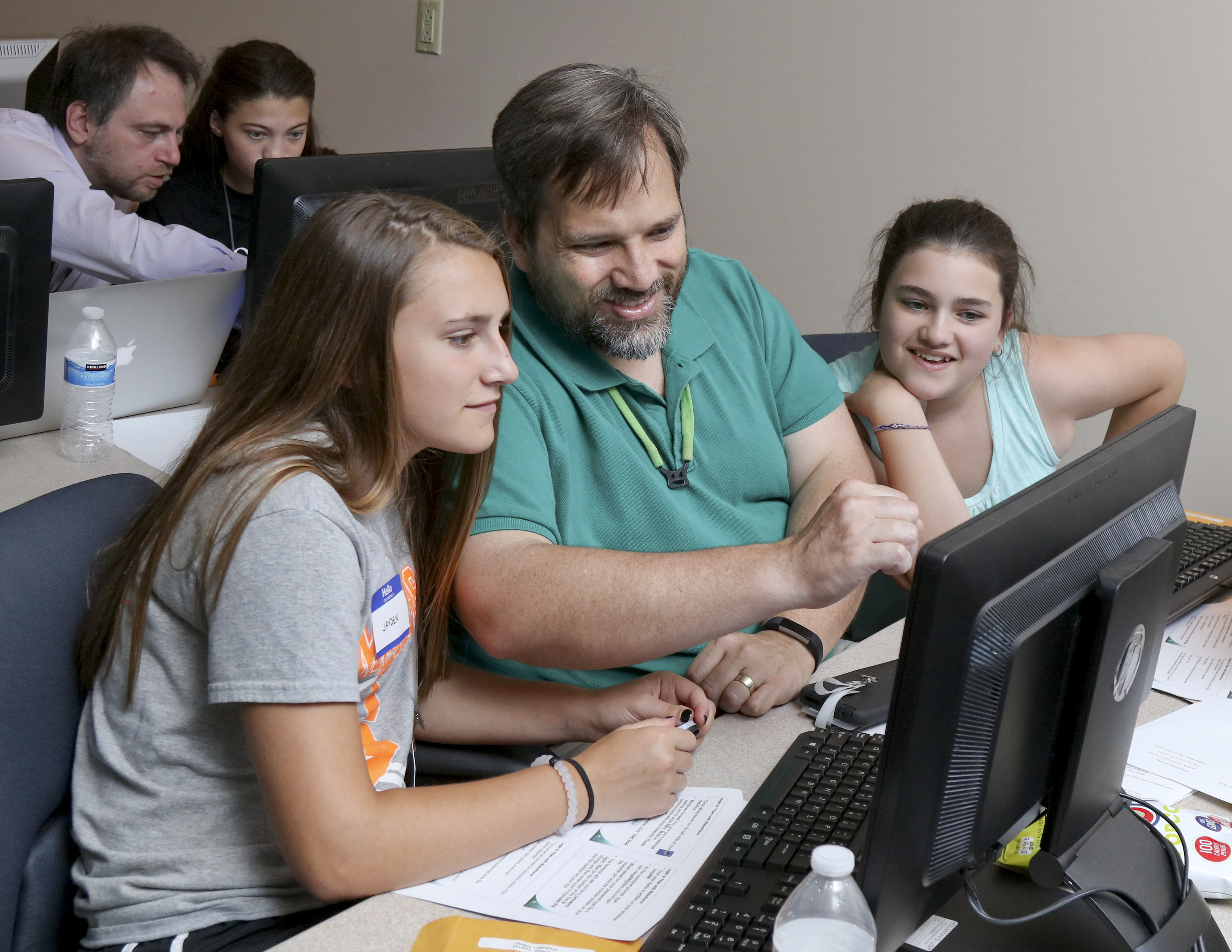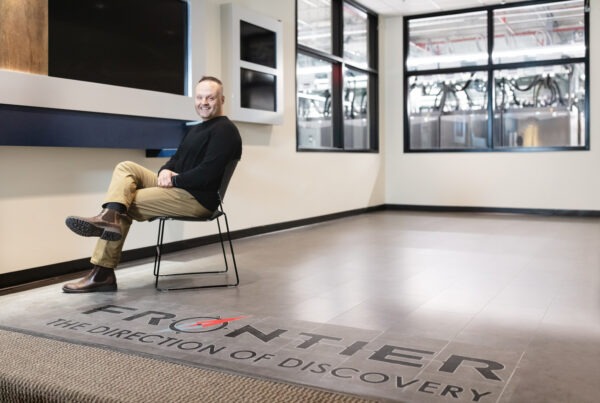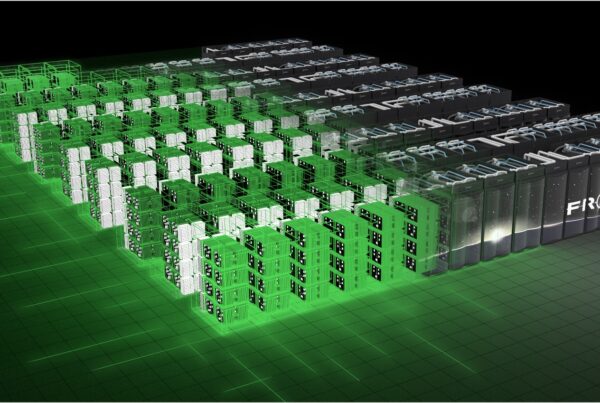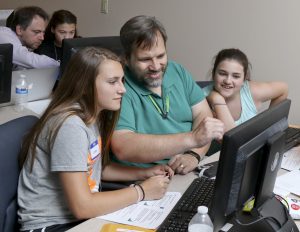
Staff from the CCSD coded with their daughters at the inaugural Introduce Your Daughter to Code event hosted by WiC. Among the participants were (front row, left to right) Jayden Ellis, Brett Ellis, and Abigail Ellis; (back row, left to right) Edmon Begoli and Anastasia M. Begoli.
In July, Women in Computing (WiC) at the US Department of Energy’s (DOE’s) Oak Ridge National Laboratory (ORNL) hosted Introduce Your Daughter to Code, an event during which girls between the ages of 10 and 16 ran code on one of the world’s most powerful supercomputers, the Cray XK7 Titan.
The event provided daughters of staff in ORNL’s Computing and Computational Sciences Directorate the opportunity to learn about code from programmers within several departments of the Oak Ridge Leadership Computing Facility (OLCF), a DOE Office of Science User Facility located at ORNL.
The women who organized and contributed to the inaugural event included WiC members Megan Bradley, Kate Carter, Amy Coen, Kat Engstrom, Suzanne Parete-Koon, Katie Schuman, and Susheela Singh.
During the first hour, participants used their ages and the numbers of letters in their names to change the specifications for visualizations they created using the program fractalName. Designed by Susheela Singh, an OLCF intern from North Carolina State University, fractalName uses input data to generate images in the form of colorful fractals, repeating geometric patterns that make up larger shapes. The girls displayed their fractals on the visualization wall in the Exploratory Visualization Environment for Research in Science and Technology (EVEREST).
The girls and their parents also ran a code on Titan, the OLCF’s flagship supercomputer. The Birthday Pi program, designed by Katie Schuman, a Liane Russell Distinguished Early Career Fellow, enabled the girls to find their birthday sequences within the first 100,000 digits of pi. The coding experience gave the girls a glimpse into computing and their parents the opportunity to share insights into their careers.
Suzanne Parete-Koon, OLCF user support specialist, stressed the importance of providing time for parents to participate in events with their children, especially ones involving their jobs. She said one of her biggest influences as a child was her parents’ inclusion of her in career-related activities. “Whatever my parents were doing, they tried to show me some piece of it,” she said.
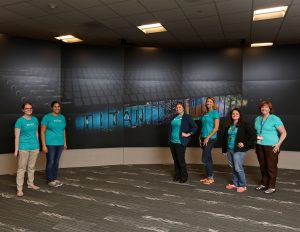
Organizers for the event included (left to right) Katie Schuman, Susheela Singh, Kat Engstrom, Kate Carter, Suzanne Parete-Koon, and Amy Coen; (not pictured) Megan Bradley.
Schuman said these kinds of events also help clear up some of the common misperceptions about computer programmers and demonstrate the numerous job options in computational sciences. “Suzanne gets to blow up virtual stars, and I get to simulate biological brains,” she said. “We are both programmers, even though we do different things.”
The event was the first at the OLCF specifically geared toward young women. Because women are typically underrepresented in STEM fields, the staff at ORNL are working to decrease this disparity. “I think encouraging young women is incredibly important in all of the STEM categories because these women will be some of our greatest minds,” said Kat Engstrom, visualization support specialist for EVEREST.
WiC is already looking at ways to expand the event in the future, hoping to reach even wider audiences. “I think there’s definitely a long-term goal to increase this kind of outreach. This was just the start,” Engstrom said.
Women in Computing
WiC at ORNL is a networking group that aims to bring students, staff, and collaborators together to provide an environment that supports women in computing. It is also focused on recruiting new female students and postdoctoral researchers to ORNL through career fairs, professional-development events, and technical presentations.
Oak Ridge National Laboratory is supported by the US Department of Energy’s Office of Science. The single largest supporter of basic research in the physical sciences in the United States, the Office of Science is working to address some of the most pressing challenges of our time. For more information, please visit science.energy.gov.


